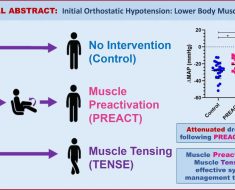NEW YORK (Reuters Health) – A large and prolonged outbreak of infections with extremely drug-resistant bacteria has been traced to people from the U.S. who traveled to Mexico to have weight-loss surgery, a new study finds.
The outbreak of carbapenem-producing Pseudomonas aeruginosa was traced by scientists from the Centers for Disease Control and Prevention (CDC) to 38 medical tourists who had undergone bariatric surgery in Tijuana, a city in Baja California, Mexico.
Thirty-one of these patients received their surgery from the same surgeon, according to a report published in Emerging Infectious Diseases.
“We describe a public health investigation of a large, prolonged outbreak of highly drug-resistant Pseudomonas aeruginosa among U.S. medical tourists who underwent bariatric surgery in Tijuana, Mexico,” said Dr. Cal Ham MD, medical officer and deputy lead of the prevention and response branch’s antimicrobial resistance team.
“Several lines of epidemiologic and laboratory findings in this investigation support a point source outbreak linked to surgeon 1, a surgeon specializing in bariatric surgery who operated primarily at facility A,” Dr. Ham said in an email. “This investigation underscores the potential for medical tourists to acquire rare, highly concerning pathogens that may cause infections that are difficult to treat. Although we did not find transmission in any U.S. healthcare facilities that treated patients in this outbreak, there remains the potential for these pathogens to be introduced into the U.S. healthcare system and spread to others.”
“Anyone considering medical tourism and U.S. healthcare providers caring for prospective or returned medical tourists should be aware that standards for infection control, as well as regulations and enforcement practices, vary by country and facility,” Dr. Ham said. “Providers caring for patients with a history of recent invasive procedures outside the United States should be aware of the potential for infections caused by resistant pathogens currently uncommon in the United States, ensure appropriate treatment if the patients have infections, and take measures to prevent spread to other patients. Providers can work with their health department for specialized testing to identify whether patients have these unusual resistant organisms.”
The CDC first learned of an infection with Carbapenem-resistant Pseudomonas aeruginosa (CRPA) producing the Verona integrin-encoded metallo-beta-lactamase (VIM) from a report sent to them by the Arizona Department of Health Services. The bacteria had been cultured on September 5, 2018, from an abdominal wound of a 31-year-old patient who had undergone bariatric surgery 15 days earlier. The agency received six more reports of patients infected with the bacteria between late September and late November.
Those findings sparked a public-health investigation by the CDC and the Secretariat of Health in Baja California, Mexico.
Between August 1, 2018, and December 31, 2019, Dr. Ham and his team identified 44 cases from 19 states, 25 of which were confirmed, 13 determined to be probable cases and six suspected cases. Among the 38 patients who had confirmed or probable cases, 34 were female. The median age at the time specimens were collected was 39. The median time between the surgeries and the specimen collections was 12 days.
Thirty-four of those patients had received sleeve gastrectomy and 16 were hospitalized. Among the 14 patients for whom the duration of hospitalization was known, the median stay was seven days, with a range of one to 19 days.
Four of the hospitalized patients were transferred to the intensive-care unit. Six received surgery for infection management. One died.
“The Federal Commission for Protection against Sanitary Risk in Mexico conducted an infection control assessment of facility A in December 2018 and identified multiple lapses, including poor hand hygiene practices, incomplete clinical records, and lack of chemical or biologic indicators to ensure medical equipment and device sterility after reprocessing,” Dr. Ham and his team noted.
“Medical tourists may pursue medical care abroad for a variety of reasons, such as decreased cost, a recommendation from friends or family, the opportunity to combine medical care with a vacation destination, a preference for care from providers who share the traveler’s culture, or to receive a procedure or therapy not available in their country of residence, Dr. Ham said.
“Whenever possible, people seeking care overseas should choose healthcare facilities with active infection prevention and control programs, particularly those that have been accredited for infection prevention and control by national and international bodies. While this may reduce the risk, it does not completely eliminate the possibility of infection by highly resistant pathogens uncommon in the United States,” he added. “Persons seeking care in the U.S. after receiving medical care abroad should always tell their provider about their travels and medical encounters outside of the U.S.”
SOURCE: https://bit.ly/3sh30Nd Emerging Infectious Diseases, online December 15, 2021.
Source: Read Full Article





